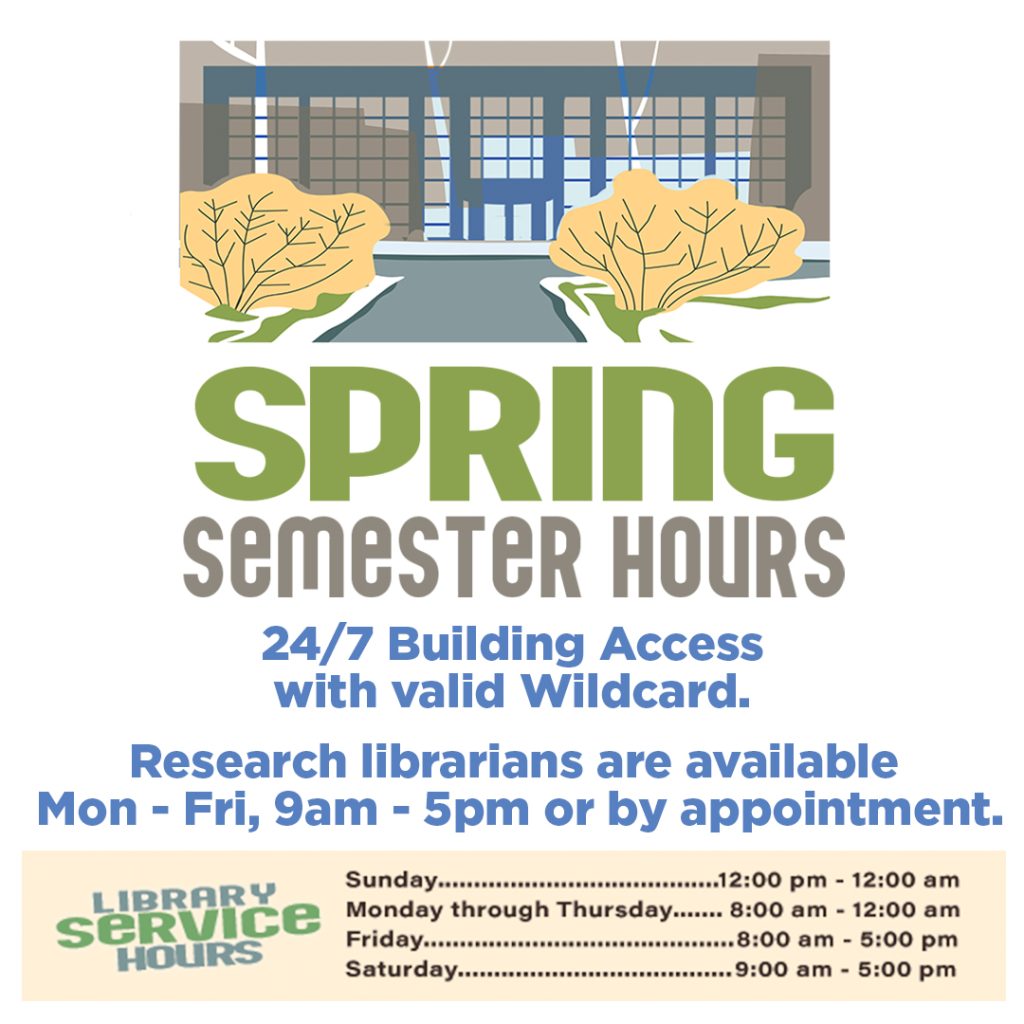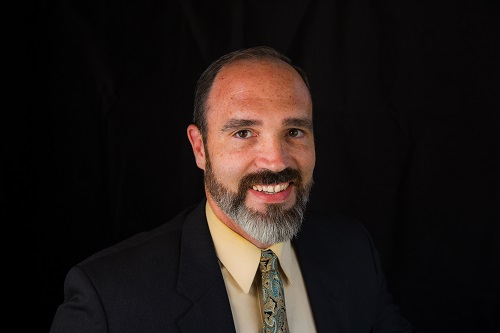Bess Rowen, PhD, Department of Theatre, will teach the inaugural Introduction to LGBTQ Studies course at Villanova University during the spring 2023 semester. The course (GWS 2060), offered through the Gender and Women’s Studies (GWS) program, will provide students the opportunity to learn about representative objects of study and methods in the interdisciplinary LGBTQ+ Studies field.
In addition to GWS 2060, Dr. Rowen also teaches (GWS 2050) Introduction to Gender Studies; (Theatre 3030) Gender, Performance, and True Crime; (Theatre 7150) Vision and Form; and (Theatre 8200) Staging Gender and Sexuality. Dr. Rowen received a BA in English and Theatre from Lehigh University, a MA in Performance Studies from New York University, and a PhD in Theatre and Performance from The Graduate Center at CUNY. She recently gave a Scholarship@Villanova lecture at Falvey Memorial Library focusing on her newly published book The Lines Between the Lines: How Stage Directions Affect Embodiment.
I had the opportunity to speak with Dr. Rowen about her plans for developing the Introduction to LGBTQ Studies course and the importance of having this class at Villanova University.
Kallie Stahl (KS): How did this course come to fruition?
Dr. Bess Rowen (BR): The course started with Travis Foster, PhD, Associate Professor of English, Academic Director of Gender and Women’s Studies. He had been talking to me about this course for a while. I’ve been teaching GWS 2050, which is the introductory course to the GWS major and minor for three years. Travis asked if I would be the inaugural person to teach GWS 2060, and I was so honored by that and so excited about it. Especially because I had always taught GWS courses alongside theatre and performance. I never had the opportunity to just focus on LGBTQIA+ topics and look at that by itself. Of course, I am a theatre professor, so everything for me comes through theatre and performance in a certain way. The opportunity to be able to craft this course is super exciting to me.
KS: How does this course differ from current offerings in the GWS program?
BR: The introductory course (GWS 2050) has a lot of different areas. One area is the history of feminism in the United States and abroad. Another area is gender studies, specifically what is gender? How do we think about it? How have we historically thought about it and where it is going. Another area is sexuality and LGBTQIA+ Studies. At most institutions, the vast majority of what people are doing in GWS these days really does revolve around gender and sexuality. Students should have the opportunity to focus on the LGBTQIA+ aspect of GWS if that is really what they want.
In my mind there are three tracks: gender studies, LGBTQ studies, and feminist studies, which is the underpinning for a lot of the work in the course overall. Feminist theory opened the door for much of this to exist. And intersectional feminism, the history of people who have been erased; women of color, people who didn’t fit in the gender binary, all those things grow out of feminism. In the future, I could see people graduating Villanova with majors and minors in these particular areas, and at this time, one course doesn’t allow students to do that. I also can’t stress enough the importance of Introduction to LGBTQ Studies as a GWS course and not a class offered through another program. There are only two other courses offered directly through GWS: Introduction to Gender Studies and the capstone. This is a huge thing that Travis has managed to get through, and many thanks to the College of Liberal Arts and Sciences and Villanova University for recognizing that this is an important aspect of what we do in GWS and is something that needs to be offered through that department.
KS: I know the class is scheduled to run during the spring 2023 semester, but what can you tell me about your plans for structuring the course?
BR: I am making the syllabus for the class this summer. I’m lucky because I’ve had the opportunity to teach the GWS 2050 course so many times. For the Introduction to LGBTQ Studies course, I think it is important to group things thematically and to make sure there are easily touched upon examples from students’ lives that they can connect to, which is also what I try to do in GWS 2050. Especially the heavier theoretical material, there are big concepts: like the fact that gender is a construct; the fact that sexuality, our understanding of it, is also a construct in a certain way. And queer temporality, which is the idea that linear time is setup for heteronormative people. For much of history, getting your first crush, getting married, buying a house were expected to happen in that order, but these things were not available to the vast majority of LGBTQIA+ people. So we had to develop different ways of what norms were and how they worked for us. So, for things like that, and to supplement heavier readings, I rely on two things: 1) Music videos—because they are incredibly short and digestible pieces of culture that tell a whole story in about two or three minutes. We can look at the assumptions there and what is being done differently because it’s very obvious; every student feels like they have a way in to the discussion. You don’t have to know everything about a topic to be able to give your opinions on a music video. 2) Clips from media (movies, television). We can see representations in media. A lot of the time they are bad representations, but there is still a conversation to be had there. And now there are even more representations which is fabulous.
I’m also going to cover important historical moves, theoretical moves, and representational moves in popular culture and media. These are threads that we’ll weave together. I never set up courses with strict chronological order, partially because of that queer temporality I touched upon earlier. You can’t tell a linear story about LGBTQIA+ culture; it doesn’t go in a straight line. There’s a lot of stepping forward and backward. It’s important not to give a false narrative that it’s all upward progress. But we still have a responsibility to those who have an interest in these areas to know the history, good and bad. LGBTQIA+ history is important. In a lot of other lineages, if you have a marginalized identity marker, you are around other people who have the same identity marker, perhaps in your family or general community. You are around others who know what those experiences are like. Or, you can find others that have similar experiences. For the LGBTQIA+ community, that person is less likely to be right next to you in your family or community. A lot of times, I have students (and this was me in graduate school) doing a ton of catchup because no one sits you down and says, “Here is the history of our representation in the world.” It’s important to give students that opportunity because if we don’t talk about these things, people can think that they don’t exist. Queer people are not new. Trans people are not new. It’s important to start with “being seen in context” and then moving from there.
KS: What would you say to a student that is interested in taking the course, but might be hesitant because they don’t have a vast knowledge of LGBTQIA+ studies?
BR: I know it’s hard to tell in a blog post, but I’m not scary. I always have a student or two (before signing up for my GWS course) who says that they might be nervous to take the course because they don’t have a lot of knowledge, but that’s the point of an intro course. I don’t care how much knowledge you come in with. If you have an interest, that’s enough for me.
I say this at the beginning of most of my GWS classes, “Nothing that could come out of your mouths is something that I haven’t heard before…I promise.” In a learning environment, it is my job to take what you are giving me and help make your understanding better. So, if I’m doing my job right, people get less afraid to mess up. Messing up is proof of learning in a lot of ways. Villanova has an incredibly kind population. I know these students are not coming in here to cause harm, there’s obviously a difference between intention and impact. So I can take what you’re saying and give you better terminology to express yourself more clearly. I’m willing to be the person who says, “Hey, instead of using this word, it’s probably better to use this word.”
I think one of the things I love about teaching GWS 2050 is watching how much more comfortable people get talking about these issues. Of course, students already have opinions prior to taking a GWS course, but some might not be comfortable expressing them, or they don’t feel like they had enough knowledge to really be able to talk about with another person, aside from just stating their opinion. I do lots of pair work and small group work in all my classes. So, if someone is afraid to say something in front of me, they can test it out on another person first. It gets everyone’s voice to be heard by another person. I love this thing called “listening pairs.” I took Teaching 2020 (now Teaching and Leading 2030) my first year at Villanova and it was introduced to me there. It’s a great program. They gave me so many pedagogical tools.
A class of 25 is not a large lecture, but its big enough that people can still feel like they can fade into the background. But I promise you, you can’t with the Introduction to LGBTQ Studies course. I will know everyone’s name. You will know everyone’s names. Those kinds of things are important to me. I really want to make a small community in all my GWS classes. I don’t care how you identify, but in the classroom, we will be talking about and creating a space for conversations like this that can be supported and worked through.
KS: Is the course open to all Villanova undergraduate students?
BR: The class is open to all undergraduates. You don’t need any prerequisites.
KS: Why is it imperative for Villanova University to continue to offer this course (and similar courses) in the future?
BR: I think it’s so important here at Villanova that we have the option for students to really dive deeper into these topics. And if you look at the current course offerings for GWS, people do get to dig into those topics except for LGBTQIA+ issues. I did an independent study with one of our GWS students who wanted to focus on queer theory in more detail. As one of my areas of studies, I am qualified to do that. I am also an out queer person on this campus, so it’s important to me that we make this course available to the Villanova community. I already have students interested in taking the course. And I’ve been asked about this course for a long time, which is one of the reasons that it exists now. I’m glad students will have the opportunity to focus on the LGBTQIA+ aspect of GWS.
KS: Is there a course you would like to teach in the future?
BR: I’m lucky because in a lot of ways it has been the true crime course. I wanted to teach that, and a student suggested it in my GWS class several years ago. Then my amazing department chair, Valerie Joyce, PhD, Associate Professor, Theatre, allowed me to go on this adventure. This semester is the second time I’ve taught it. I love teaching that course. I think it’s so fascinating to watch people really analyze gender and talk about performativity in true crime. In some ways I already feel like I’ve taught my dream course. For theatre, the course I would love to teach one day is course version of my book (The Lines Between the Lines: How Stage Directions Affect Embodiment), which focuses on stage directions. While a lot of our classes find ways to make important inroads, I’ve often thought about a course that is solely about the history of stage directions—what they do, how to write them, and different ways of enacting them. That would be such a cool course. My department is incredibly supportive, lovely, and amazing, and I think I could argue for that and make it happen if students were interested. Someday I would like to teach that course.
KS: Your book, The Lines Between the Lines: How Stage Directions Affect Embodiment, was just released last year. Can you talk about your current research?
BR: I co-founded a transfeminism working group, and I’ve been working with a great group of collaborators for the past few years. Although I’m a cisgender woman, I’m trying to use that privilege to draw attention to the ways trans people are not accounted for in feminist studies within theatre and performance. I am joined by my brilliant collaborators, who are a mix of trans, nonbinary, and cis folx. We are working together on a book project that would be a resource so that people within the field of theatre have a way to start talking about trans and nonbinary playwrights, performers, and performances and what they mean. My contribution to this collaboration is an article I have been working on, that I presented at a GWS faculty research spotlight. Watching trans and nonbinary performers on stage when you may not hang out with in your everyday life, gives us this amazing permission to stare at someone whose experience is completely different than ours—on that person’s terms entirely. You’re watching them perform, but you’re also watching what trans and nonbinary people could look like—but you’re not only watching them because of that. We get that knowledge from representing trans and non-binary stories. People who don’t know how to talk about these things might get nervous about it. And I get that, and I’m not saying that I always do it perfectly either. But it is our job to try. It is our job as people with more privilege to use that privilege to create space to discuss these things. This is an area of the theatre field that people shy away from and that was a call to action for me.
My next solo book project is examining the ways in which we represent adolescent girlhood on stage. We often make these girls into villains. We do it in television shows too. Hell hath no fury like a teenage girl that is out to mess up your life. That is historically what we have seen. More contemporary plays and media have started to undermine that, but you can still find that trope so easily. I think we do girls (and everyone) a disservice by making that a thing that we associate with teenage girls. I’ve always been interested in gender, sexuality, and feminism, and they are more foregrounded in my upcoming scholarship.
KS: While students are waiting to take your class, are there any other LGBTQIA+ courses being offered this fall?
BR: If they haven’t already, students can take (GWS 2050) Introduction to Gender Studies. There is also a list of affiliate GWS courses through other departments. Be sure to check out the GWS program webpage for fall 2022 updates.
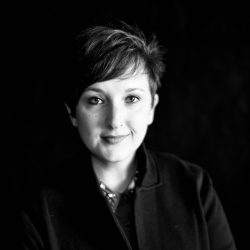 Kallie Stahl ’17 MA is Communication and Marketing Specialist at Falvey Memorial Library.
Kallie Stahl ’17 MA is Communication and Marketing Specialist at Falvey Memorial Library.
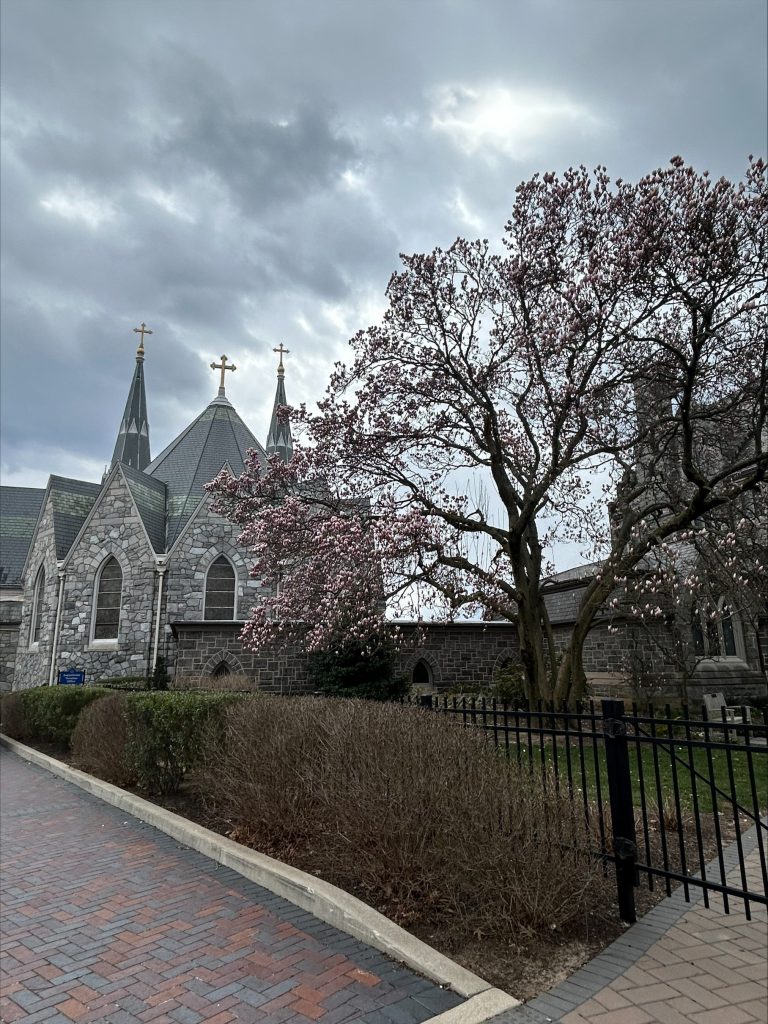
 Kallie Stahl ’17 MA is Communication and Marketing Specialist at Falvey Library.
Kallie Stahl ’17 MA is Communication and Marketing Specialist at Falvey Library.



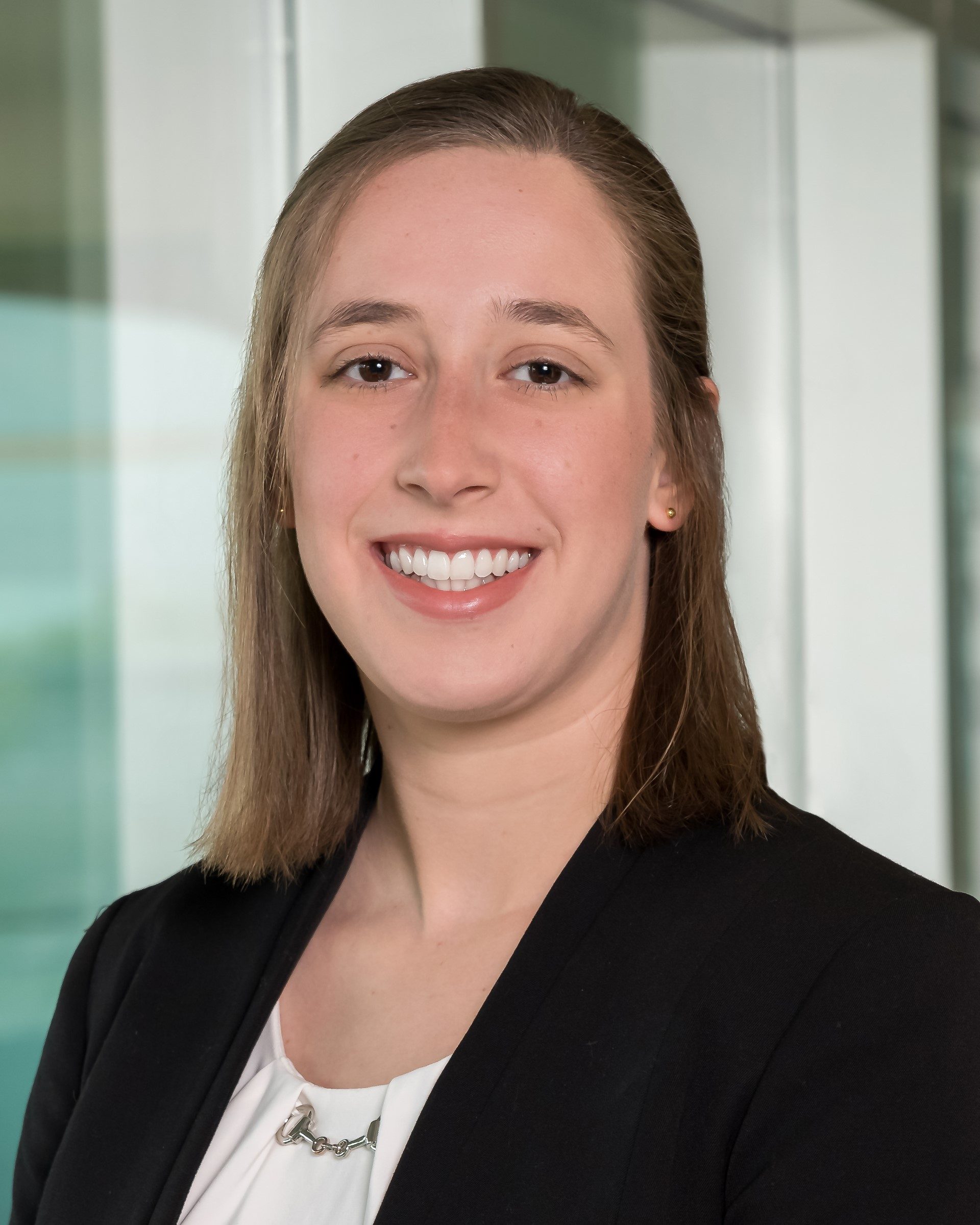 Rebecca Amrick is a first-year graduate student in the English Department and a Graduate Assistant at Falvey Library.
Rebecca Amrick is a first-year graduate student in the English Department and a Graduate Assistant at Falvey Library.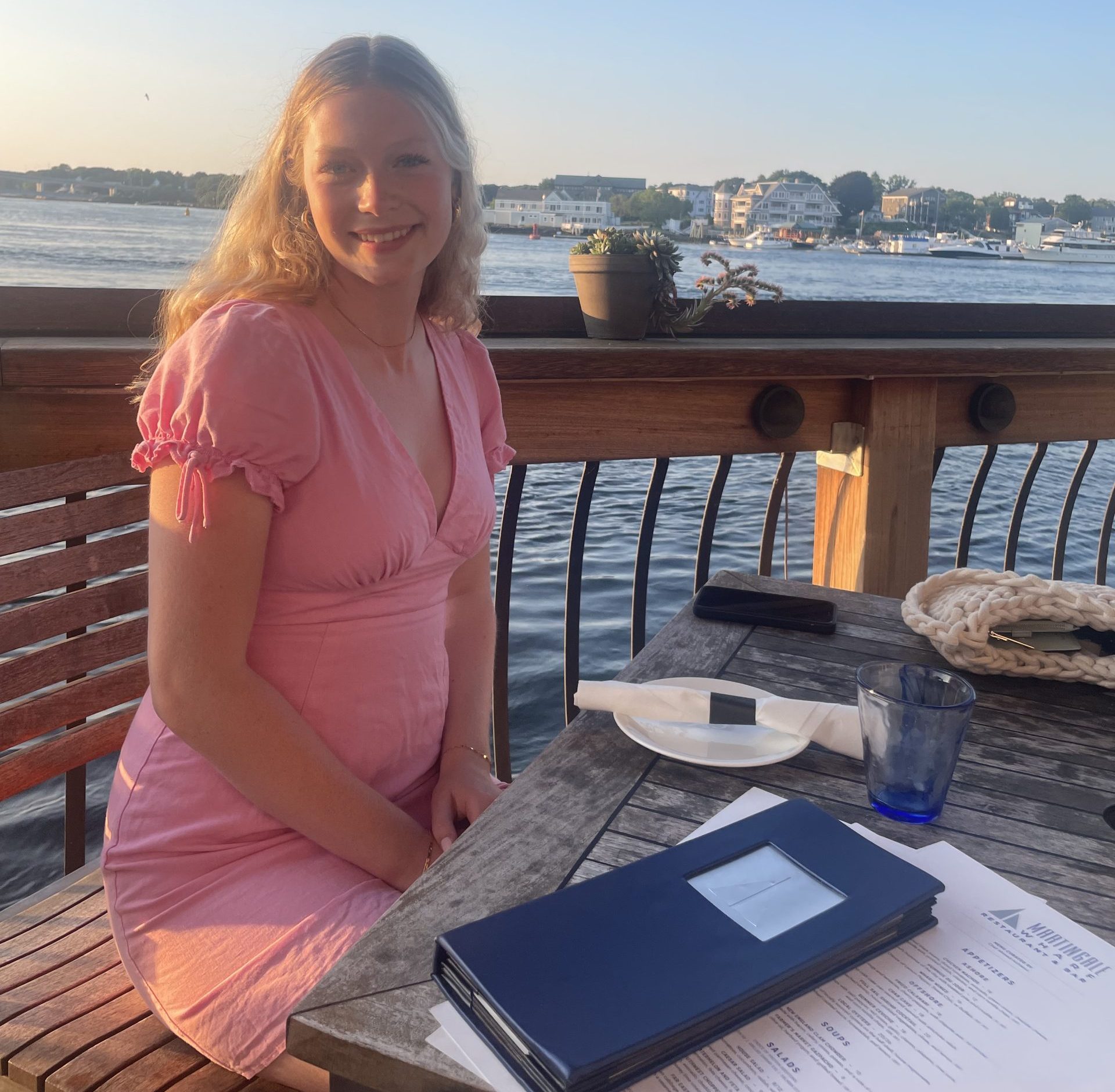 Julia Wagner ’26 CLAS is a second-year Economics major and student worker at Falvey Library.
Julia Wagner ’26 CLAS is a second-year Economics major and student worker at Falvey Library.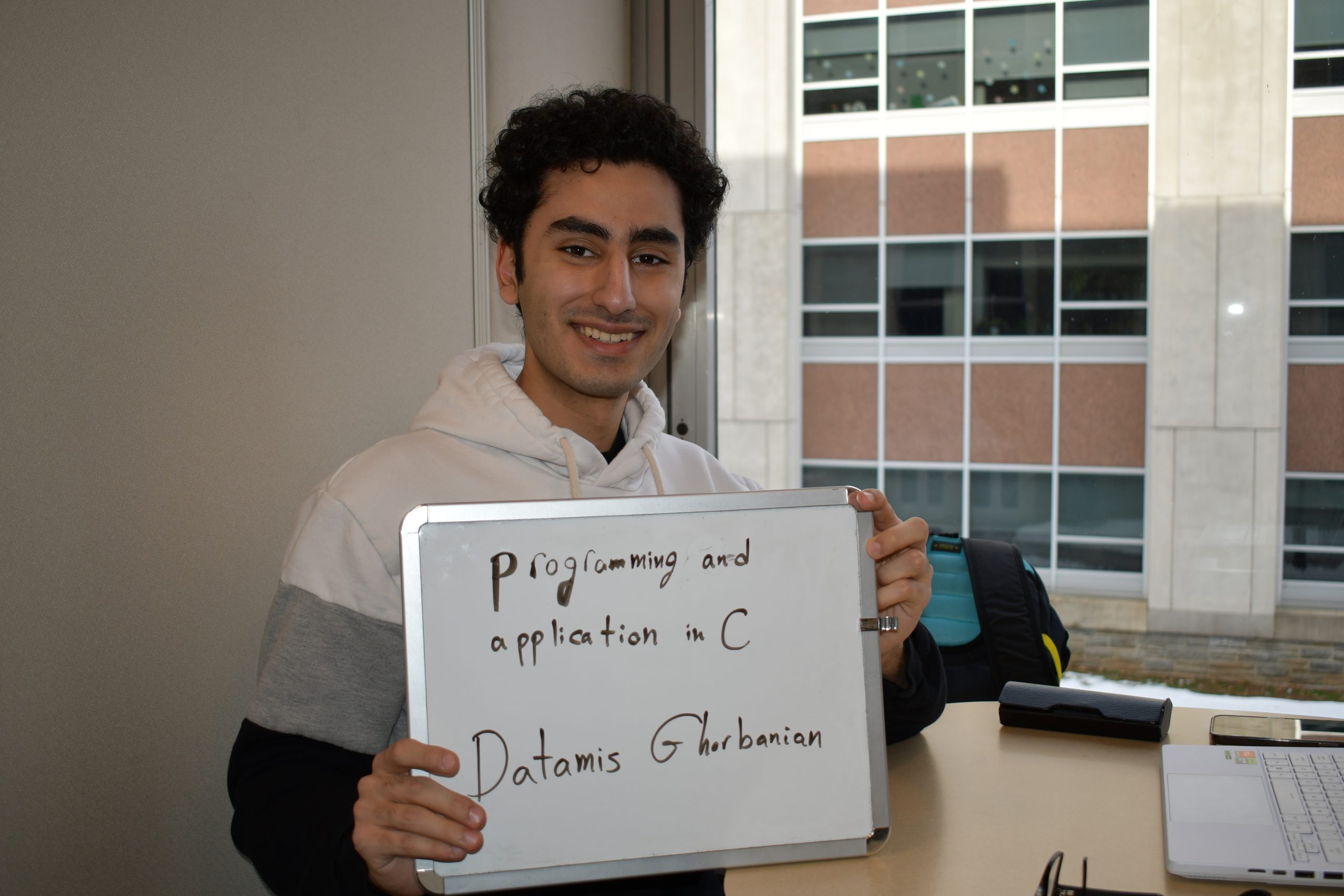
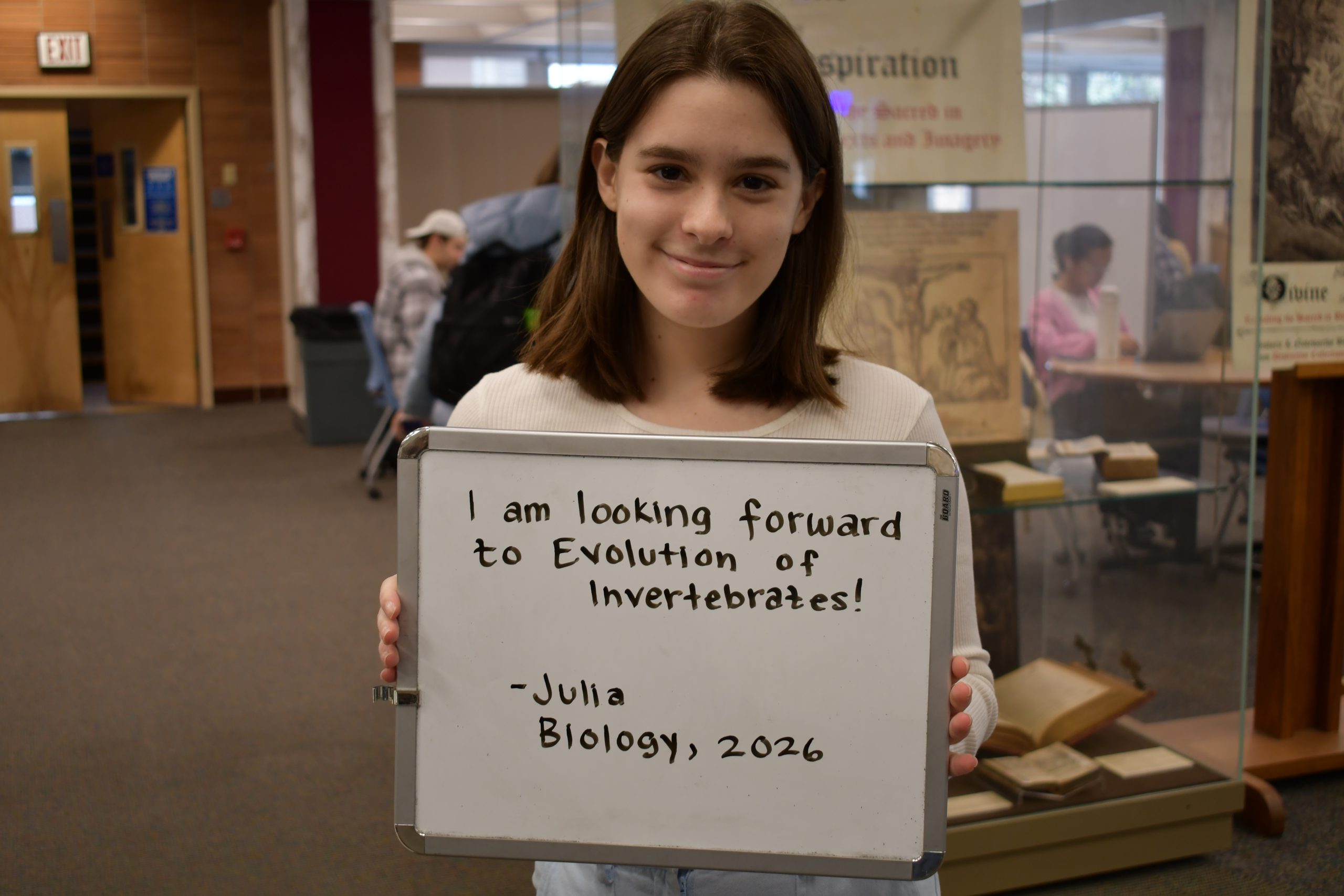
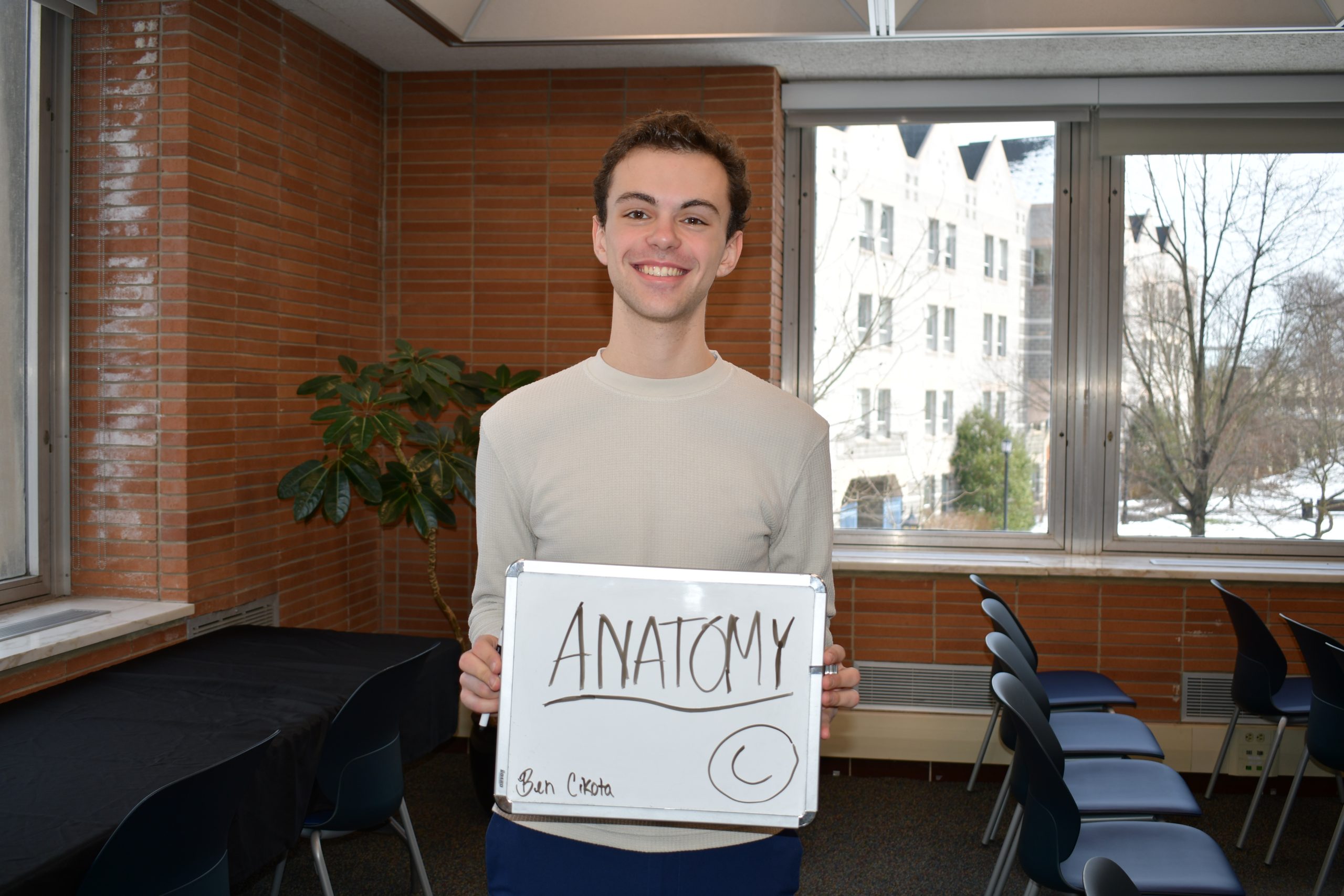




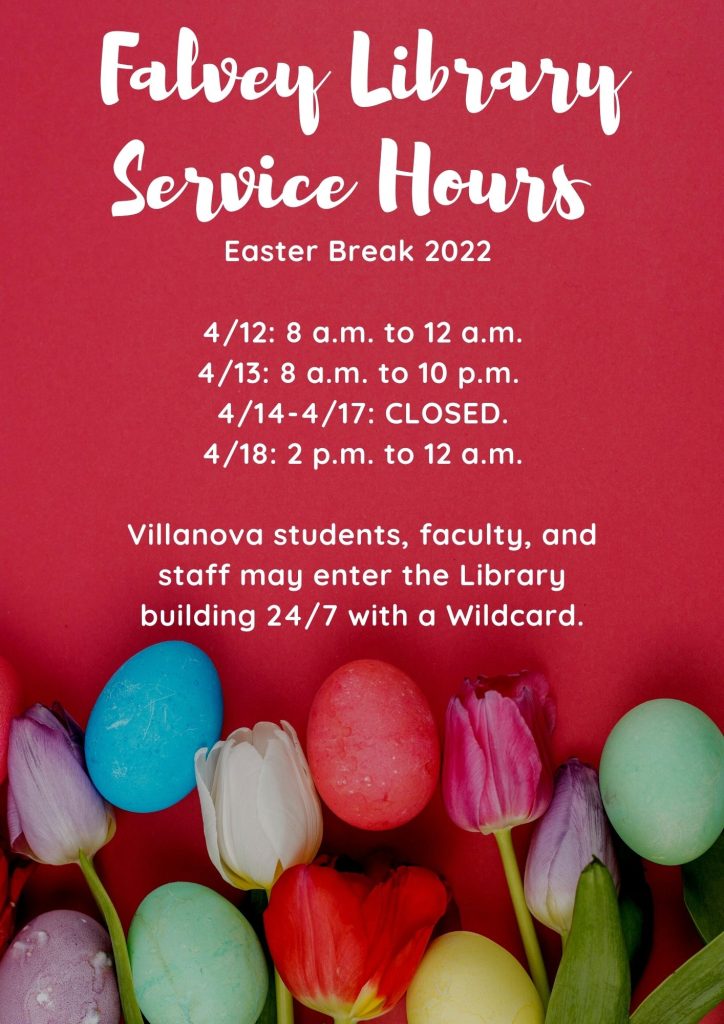
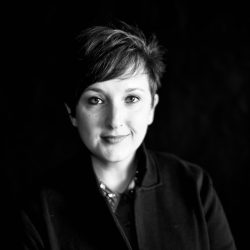 Kallie Stahl ’17 MA is Communication and Marketing Specialist at Falvey Memorial Library.
Kallie Stahl ’17 MA is Communication and Marketing Specialist at Falvey Memorial Library.